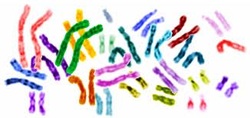
Despite their genetic likeness to humans, chimps and other primates have a maximum lifespan that hardly surpass 50 years. According to a USC Davis School of Gerontology professor, Caleb Finch, the difference is that humans have evolved genes that allow them to adjust to different levels of inflammation and infection and high levels of cholesterol in their mostly meat diets.
His study reveals that human’s genetic advantages, due to the slight variations on the sequencing of their DNA and the development of their diet, made humans exceptionally susceptible to ageing sicknesses like cancer, dementia and heart disease, than other primates.
“Over time, ingestion of red meat, particularly raw meat infected with parasites in the era before cooking, stimulates chronic inflammation that leads to some of the common diseases of ageing”, he said.
Humans also evolved the apolipoprotein E, a unique cholesterol carrying gene that regulates infection and other aging aspects in the arteries and the brain.
ApoE3, exclusively found in humans and called the ‘meat-adaptive gene’, is responsible for the increased lifespan of humans. However, apoE4, a minor allele, can damage neuronal development and may shorten lifespan if expressed in humans. Carriers of this allele have greater blood cholesterol, early attacks of Alzheimer’s and heart disease, and more oxidised lipids in the blood.
“The chimpanzee apoE functions more like the "good" apoE3, which contributes to low levels of heart disease and Alzheimer's”, stated Finch. Likewise, chimpanzees living in captivity have extraordinarily low risks of Alzheimer’s and heart disease during aging.
His study reveals that human’s genetic advantages, due to the slight variations on the sequencing of their DNA and the development of their diet, made humans exceptionally susceptible to ageing sicknesses like cancer, dementia and heart disease, than other primates.
“Over time, ingestion of red meat, particularly raw meat infected with parasites in the era before cooking, stimulates chronic inflammation that leads to some of the common diseases of ageing”, he said.
Humans also evolved the apolipoprotein E, a unique cholesterol carrying gene that regulates infection and other aging aspects in the arteries and the brain.
ApoE3, exclusively found in humans and called the ‘meat-adaptive gene’, is responsible for the increased lifespan of humans. However, apoE4, a minor allele, can damage neuronal development and may shorten lifespan if expressed in humans. Carriers of this allele have greater blood cholesterol, early attacks of Alzheimer’s and heart disease, and more oxidised lipids in the blood.
“The chimpanzee apoE functions more like the "good" apoE3, which contributes to low levels of heart disease and Alzheimer's”, stated Finch. Likewise, chimpanzees living in captivity have extraordinarily low risks of Alzheimer’s and heart disease during aging.
 RSS Feed
RSS Feed